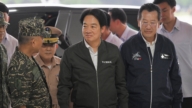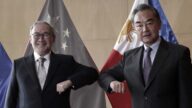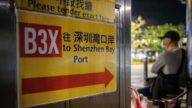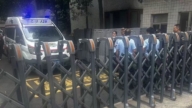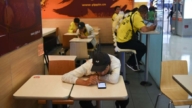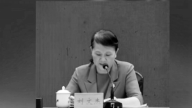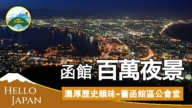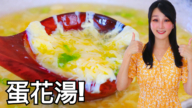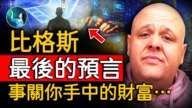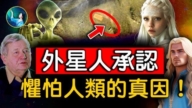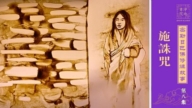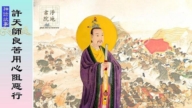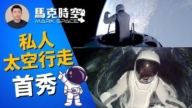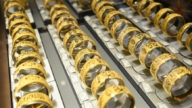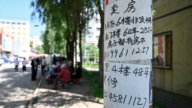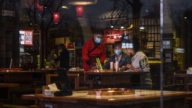【新唐人2012年9月11日讯】中共主席胡锦涛,9号,出席“亚太经合组织”第20次领导人非正式会议期间,同日本首相野田佳彦进行了大约15分钟的交谈,就当前中日关系和钓鱼岛问题表明了中方立场。胡锦涛的措词被外界认为,是至今以来在钓鱼岛问题上最强硬的表态。但是胡锦涛一强硬,似乎给喉舌媒体《新华社》带来了难题。
《新华社》先是在中午12点35分发出报导,说胡锦涛和野田佳彦交谈时“郑重指出,近来,中日关系因钓鱼岛问题面临严峻局面”,“日方采取任何方式‘购岛’都是非法的、无效的,中方坚决反对。”
不过,这篇稿子发出半小时后,被“新华社总编室”通告“撤销”,没有解释原因。在撤稿同时,《新华社》发出另一则短稿,删除了被撤报导中,中方坚决反对日方“购岛”、希望日方不要作出错误决定等内容。仅简单报导胡锦涛“同日本首相野田佳彦进行了交谈。胡锦涛就当前中日关系和钓鱼岛问题表明了中方立场”。
但到了晚间8点25分,《新华社》再发出最初的报导,但在文中加上呼吁日方“同中方一道”的一句。
美国“纽约城市大学”政治学教授夏明认为,这表示了中共高层内部不和谐。
美国“纽约城市大学”政治学教授 夏明:“《新华社》它的发稿,现在我们可以看到,中国国内出现非常混乱的一个局面。混乱表现在,中共上层基本上已经没办法保持一个声音了。各方面利益,各种声音争吵,而且出现了许多杂音。那麽现在涉及到外交政策上,我们都看到,也有不同的声音。”
香港媒体分析认为,《新华社》将报导内容删除,原意是﹕不想火上加油,进一步恶化中日关系。但后来却因为受民间舆论压力,和内地反日情绪没有降温,导致原来报导“易放难收”。
夏明教授指出,钓鱼岛问题目前被政府当作一张民族主义的牌在利用,但其实民族主义有它的危险性。
夏明:“现在中共政府要拿到钓鱼岛,希望基本上是很渺茫的。所以在这种情况下,争斗本身对中国来说,没有太大的意义。那麽中国在利用钓鱼岛事件打民族主义这张牌。可怕的地方在于什么﹖老百姓的民族主义情绪煽动以后,中国政府在钓鱼岛事件上要想有任何妥协,反而是骑虎难下。”
二战结束后,1972年美国归还冲绳,根据当时的《美日安保条约》第五条,钓鱼岛的施政权属于日本。1951年,周恩来明确表态:琉球群岛(含钓鱼岛)是日本领土。1978年8月,中国和日本签署和平条约,同意“留给下一代”解决岛屿争端。
美国纽约“罗贾斯特理工大学”荣誉退休教授朱永德指出,由于历史上的错误,使得今天钓鱼岛问题难以解决。
美国“罗彻斯特理工大学”历史学教授 朱永德﹕“这就是历史上面犯的错误一直没有得到矫正。我觉得这个关键,在我的印像当中,是邓小平说的,‘这个问题,留给下一代去解决。’那麽现在下一代来了,北京似乎到目前为止,他的智慧,没有能够超过怎么样去解决这个问题的智慧。”
虽然胡锦涛终于在钓鱼岛问题上表现出强硬态度,但《新华社》对于中共最高领导人的发言报导,半天之内做出两度修正,不仅使海外中文媒体诧异,连日本《时事通信》也说是“罕见的混乱”。
Hu Defends Diaoyu Islands—Xinhua Revises Report Twice
September 9—Chinese Communist Party (CCP) Chairman
Hu Jintao attended the 20th APEC Leaders’ Informal Meeting.
During this period, Hu and Japanese Prime Minister
Yoshihiko Noda had a 15-minute conversation.
Hu made known to Noda, China’s stance on the current
Sino-Japanese relations and on the Diaoyu Islands issue.
Outside views say, Hu’s words showed the toughest stance
by the CCP on the Diaoyu Islands (Senkaku Islands) issue
Hu’s tough attitude is causing difficulties for the CCP’s
mouthpiece media, the Xinhua News Agency.
Initially at 12:35, Xinhua News Agency reported that,
at the APEC Leaders’ Informal Meeting,
CCP leader Hu Jintao had “solemnly pointed out” to
Japanese Prime Minister Yoshihiko Noda that,
“recent Sino-Japanese relations face a grim state".
Xinhua said, on the Diaoyu islands (Senkaku Islands) issue,
“whatever ways Japanese are using to buy the islands,
they are illegal, invalid, and China resolutely opposes it.”
However, half-an-hour after issuing the report, Xinhua’s chief
editor’s office removed the script without any explanation.
At the same time as the withdrawal, Xinhua News Agency
issued another short draft, changing their reporting stance of
“China resolutely opposes Japan from buying the island" to
“China hopes Japan will not make the wrong decision".
Xinhua only briefly reported on Hu and Noda’s conversation,
saying Hu had expressed China’s stance on the current
Sino-Japanese relations and the Diaoyu Islands issue.
However, at 20:25, “Xinhua issued their initial report again,
adding a sentence: “China called on Japan to work together”.
New York City University(NYCU)’s political professor, Xia
says, it means there is disharmony within the CCP’s top level.
[Xia Ming, NYCU Political Professor]: “We can see
from Xinhua News Agency’s script that it is very confusing in China;
the confusion lies in there being no way to maintain
a one voice within the inner CCP.
There are the interests of all parties, a variety of quarrels,
and also a lot of noise.
When it comes to foreign policy, we have also seen that
there are differing voices.”
Hong Kong media analyses, “The Xinhua News Agency
deleted the content of their report;
its intention was of not wanting to further deteriorate
the Sino-Japanese relations.”
But later, Xinhua had to issue the report again under pressure
from public opinion and anti-Japanese sentiment;
the original report proved ‘easy to publish
but difficult to withdraw’.
Professor Xia Ming says the Diaoyu Islands issue is utilized as
a brand of nationalism by the CCP; yet nationalism is risky.
[Xia Ming]: “The CCP wants to get Diaoyu Islands, but really
it’s hopeless, so in this case, it does not make any sense fighting;
the CCP is utilizing it as a brand of nationalism.
What’s terrible is that the CCP incited the public’s nationalist
sentiments on the Diaoyu incident—there’s no compromise and it’s difficult to end.
After the end of World War II, in 1972, the U.S had
returned Okinawa Island to Japan.
According to the US-Japan Security Treaty, the administration
authority of Diaoyu Islands belongs to Japan.
In 1951, Zhou Enlai made it clear that, the Ryukyu Islands
(including Diaoyu Islands) are Japanese territory.
And in August 1978, China and Japan signed a peace treaty,
agreeing to let the next generation resolve the islands dispute.
Zhu Yongde, professor emeritus of New York University
of Rochester (NYUR), points out that, due to historical errors,
the Diaoyu Islands issue is difficult to resolve today.
Zhu Yongde: “The mistakes had been remained from the past.
I think the point is, from my memory, Deng Xiaoping had said
that ‘This issue is left to the next generation to solve’.
So now it’s the next generation, and Beijing’s regime
has no ability to solve this problem.”
Although finally Hu Jintao showed inflexibility
on the Diaoyu Islands issue,
the Xinhua News Agency had made two changes within
half a day, coming from top CCP leaders’ discussions.
This has not only surprised overseas Chinese media,
but also Japan’s Jiji Press, who says it is a rare confusion.


